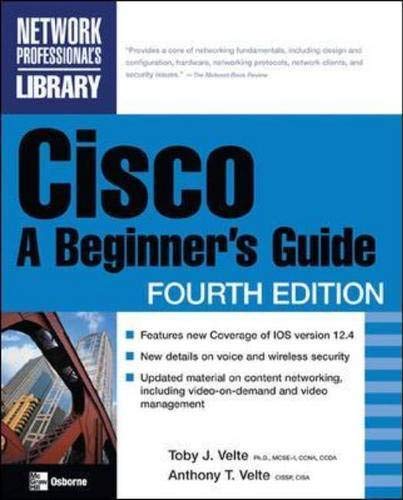This hands-on guide explains the most important fundamentals of Cisco-based technology and its implementation. For those interested in pursuing Cisco certification, this book will also serve as a solid introduction to the networking industry and related technology.
You generally can't pick up knowledge of Cisco products casually, the way you can learn about Microsoft Windows, Unix, and other products that are more generally accessible. For this reason,
Cisco: A Beginner's Guide performs a valuable service. It introduces internetworking novices to the language and fact base that underlie routers, switches, network protocols, and the rest of the Internet's infrastructure. True enough, no book can teach you everything you need to know about a subject as complex as internetworking, but this one does a great job of giving you the background you need to perform well in a class or do hands-on experiments intelligently.
The book goes heavy on prose, enabling you to slowly absorb the truth about complex systems as the author lays a foundation of knowledge and then builds upon it. Conceptual diagrams help drive home relationships among network devices, though the blueprints in the center of the book suffer from being split down the middle by the book's binding--foldouts would have been far better. This is a superb book, though, one of the best around on internetworking with Cisco. It would make an excellent first purchase for a future Cisco expert or a fine "fundamentals" reference for more accomplished network engineers. --David Wall
Topics covered: Internetworking from a theoretical standpoint, backed up by information on how Cisco products handle implementation (meaning, in part, that you get information on which Cisco lines and models are good for which jobs). Technically, readers get the goods on Cisco Internetwork Operating System (IOS), routers, switches, routing protocols, and security. There's great information on the pantheon of Cisco certifications too.
![]()
